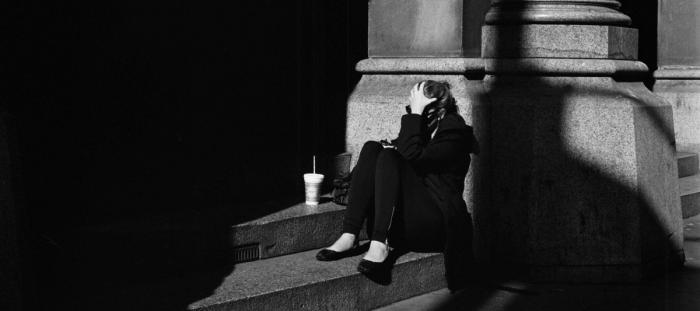“Don’t make promises you can’t keep.” We use this little proverb as a reminder of how costly our words can be. Making a promise means you have to perform what is necessary to fulfill it. After we stroll through the narratives of Genesis, adorned with the gems of God’s promise, it is easy for a curious question to prick our thoughts: Did God count the cost of his promise? The Lord swore the handsome blessing of salvation to Abraham: “I will be your God and you will be my people.” The Lord promised to dwell with his people. Hebrews informs us, however, that no one will see God without holiness (12:14).
Exodus: The Opening Curtain
If the drama of Genesis does anything, it undresses Abraham and all his children as unholy. Abraham lies, Isaac favors, Jacob deceives, and the twelve boys could star in a soap opera. How then can the Holy Lord dwell with his unholy people? Did God make a promise he couldn’t keep?
This prickly issue that lies dormant in Genesis charges onto the stage as the curtain opens in the book of Exodus. The first character in the spotlight is once again our Lord’s gracious fidelity to his promise. He remembers his covenant that he swore to the patriarchs. With tender mercy, God sees the suffering tears of his own, and he flexes his mighty bicep against the Egyptian whips. The Lord brings the haughty Egyptians low, but elevates the lowly Israelites by carrying them through the Red Sea. The Lord is the strength and song of his people; he is their salvation.
The Beautiful Terror of Sinai
And yet, the seawater has barely glassed over when the soil of the story trembles beneath our feet. The thundering and rumbling , the lightning bolts and trumpet blasts, the blazing fire and thick darkness all herald a new character: Sinai. With a magnetic pull, Sinai seizes our gaze, for here we find the rare alloy of beauty and terror. The beauty is unmistakable as God reveals his glory to his people. Imagine Sinai’s summit crowned with the fire of the Lord’s presence and cloaked in the black velvet cloud. Then there is the exquisiteness of the Lord’s words: “I… brought you to myself…you shall be my treasured possession…you shall be to me a kingdom of priests and a holy nation” (Exod. 19:4–6). To be God’s treasured priests is a grand portrait of man’s chief end of glorifying and enjoying him forever.
But this very beauty shines so brightly that we begin to cower and shrink back. The trumpet blast pierces the ears. The Lord’s loud voice rings out from the midst of the flames. The people cry out, “For this great fire will consume us. If we hear the voice of the Lord our God any more, we shall die” (Deut. 5:25). The Lord orders, “Whoever touches the mountain shall be put to death” (Exod. 19:12). Even Mary’s little lamb shall die if it touches God’s holy mountain. A fence is set around Sinai with the warning: Don’t break through, lest the Lord break out against you.
The Lord underscores to Israel that they will be his people, “if you will indeed obey my voice and keep my covenant” (Exod. 19:5). The beauty of covenant fellowship is based on the condition of obedience. In order to be God’s special possession, Israel must be holy as the Lord is holy (Lev. 19:2). The fence around Sinai, later reproduced in the fences and veils of the tabernacle, declared that only the holy shall pass. And the avenue to this holiness was obedience to the law. Righteousness by the law was the Class 5 climb to holiness with God.
Sinai’s Conditional Covenant
The Sinai ratification ceremony of Exodus 24 powerfully dramatizes the beautiful terror of Sinai. After Moses has descended from Sinai with the law, he has bulls sacrificed. Moses sprinkles part of this blood on the people represented by the twelve pillars. As sacrificial blood, this consecrates Israel to their new identity and service to the Lord. But as ratification blood, this seals the people’s oath with a curse. With one voice the people swear, “All that the Lord has spoken we will do, and we will be obedient.” Moses then sprinkles them with the blood and declares, “Behold, the blood of the covenant” (Exod. 24:3–8). The blood symbolizes the death they deserve if they fail to obey.
But the fruit of this ceremony could not be more tantalizing. In verse 9, Moses heads up the mountain with Aaron, his sons, and seventy elders of the people. They behold God enthroned in heaven and eat and drink with him, but God does not strike them. Covenant communion is enjoyed between God and his people around a table. This is the prophetic sign of what the people will enjoy if they obey all the Lord commanded them to do.
Hope in Mount Zion, Not Sinai
The holy fellowship goal of Sinai is magnificent. Yet the trek of obedience is terrifying. This terror is not at all because something is wrong with the law. Rather, it is because something is wrong with the people. Can they obey the law to become holy? The very next scene in the story answers this with an emphatic “No!” The golden calf exposes the people as unholy—sinners who are unable to obtain righteousness by the law. And the rest of Israel’s history is a footnote to the golden calf episode; our own depravity and sin are footnotes to the dancing around the calf. As sinners, we will never see God.
So, then, did God count the cost of his promise to Abraham? God promised to live with a sinful people, who are incapable of becoming holy. They cannot become holy by the law to live in God’s presence. If the law doesn’t work, how can God make his people holy to fulfill his promise to Abraham? Well, God surely knew the costliness of his promise—the cost of his own Son. On the night he was betrayed, Jesus spoke of a better covenant: “This is the new covenant in my blood poured out for the forgiveness of sins” (Matt. 26:28). By the blood of Christ we are made holy. Christ redeemed us from the curse by becoming a curse for us, so that the blessings of Abraham may come to us by faith. Christ brings you, then, not to Sinai, but to Mount Zion, to the spirits of the righteous made perfect by the better blood of Christ.
Adapted from Zach Keele, “By the Blood of a Better Covenant,” Modern Reformation, March/April 2013. Used by permission.





